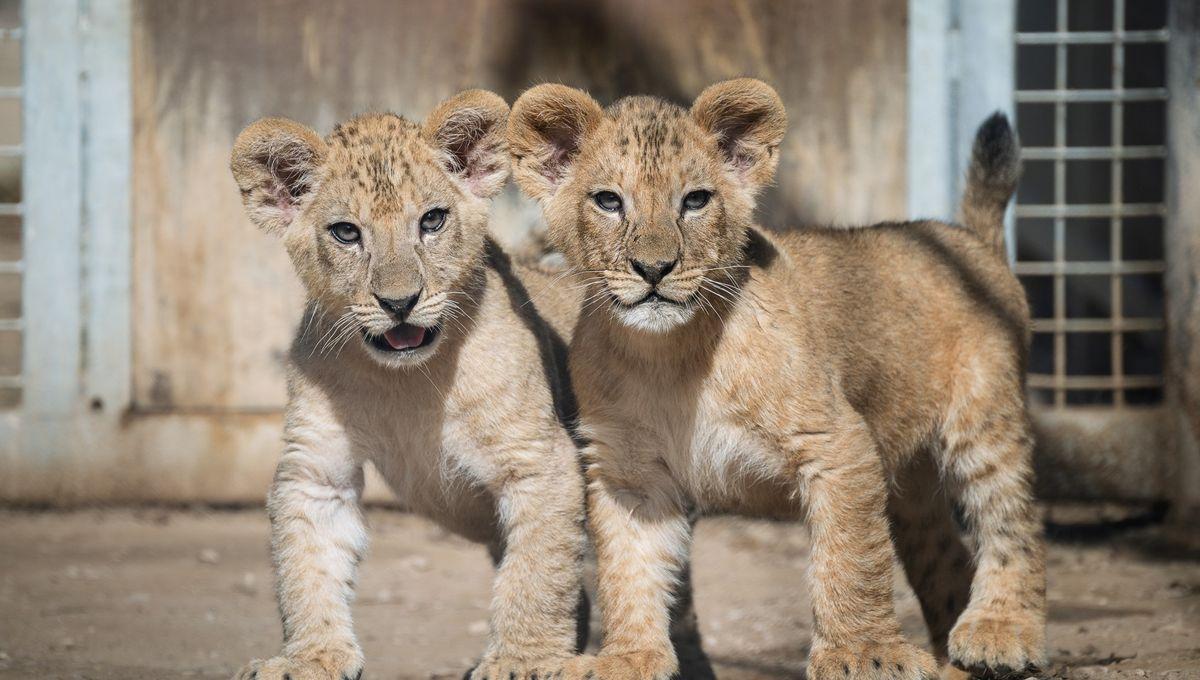-
Новости
- ИССЛЕДОВАТЬ
-
Страницы
-
Статьи пользователей
-
Форумы
Four Super Rare Barbary Lion Cubs Born At Czech Zoo In Conservation Win

Four Super Rare Barbary Lion Cubs Born At Czech Zoo In Conservation Win
A Czech zoo has welcomed four Barbary lion cubs, the result of continued efforts to conserve this rare population of big cats after it was driven to extinction in the wild.
The cubs were born at Dvůr Králové safari park to mom Khalila and dad Bart, who have previously parented equally adorable little lions back in 2019 (the first cubs born at the park in 30 years), 2020, and 2021. Now able to be seen by the public, Khalila and Bart’s latest set of cubs join a population of captive Barbary lions that reportedly clocks in at less than 200. In fact, that small population also totals the number of Barbary lions – a population of the Northern lion subspecies (Panthera leo leo) – that are thought to be left in the world, as they’re widely believed to be extinct in the wild. Up until the 18th century, their range is thought to have extended from the Atlas Mountains through to the Mediterranean, but persistent and extensive hunting over the following century progressively reduced their habitat and numbers. By the time the 20th century rolled around, the Barbary lion was few and far between, and the last known photograph of one in the wild was taken in 1925. It’s widely thought that the very last wild Barbary lion was shot and killed in 1942, but some research suggests that the population may have clung on until 1958 in Algeria. However, their rapid extinction in those 200 or so years was far from the beginning of the negative relationship between humans and Barbary lions. According to Belfast City Zoo, Barbary lions were used as part of Roman gladiatorial games, with death by lion serving as a form of capital punishment known as “damnatio ad bestias” or “condemnation to beasts”. Thankfully, the view towards Barbary lions nowadays isn’t one that sees them as beasts or animals to be rid of, but instead as a population to be conserved. Posing runs in the family, it seems. Image courtesy of Helena Hubáčková / SAFARI PARK DVŮR KRÁLOVÉ According to the Associated Press (AP), Dvůr Králové safari park is part of an international endangered species program that will eventually see its cubs sent to other zoos in the program, with a view to one day reintroducing Barbary lions into the wild. That day is in the “far distant future”, Jaroslav Hyjánek, Deputy Director of Dvůr Králové, told AP, as reintroduction is far from a simple process. While there are talks with authorities and experts beginning to take shape, there are plenty of potential hurdles – both bureaucratic and practical. Is their historical range still suitable for the lions? Will the humans who live there support their return? How do we ensure that the lions remain protected? Those aren’t easy questions to answer – but to Hyjánek, it’s worth a shot. “It’s important to have such a vision for any animal,” he told AP. “Without it, the existence of zoos wouldn’t make sense.”


